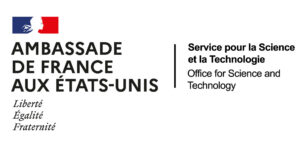Photos © Pierre Jayet / Agence Grenoble-Alpes
grenoble
grenoble
grenoble
grenoble
grenoble
grenoble
grenoble
grenoble
la synapse
la synapse
la synapse
la synapse
la synapse
la synapse
la synapse
la synapse

History
Its history is marked by an ability to adapt and innovate. After having been a regional center under the Roman Empire, in the 14th century it became the capital of the important Dauphiné province. In the 19th century, Grenoble gained worldwide fame as the birthplace of hydroelectricity, which fueled its subsequent industrial development.
This tradition of innovation has been accompanied by a strong commitment to the environment. In 2022, Grenoble was named European Green Capital, recognition of its pioneering role in the ecological transition. This title highlights its initiatives in sustainable mobility, management of natural spaces and the fight against climate change. Combining a rich history with an avant-garde ecological vision, Grenoble is a model city where technological innovation and sustainability meet.
General Economy
In addition to historically strong traditional sectors, cutting-edge sectors such as microelectronics, medicine and renewable energies have been added.
Thus, STMicroelectronics, born in Grenoble, has become a major player in microelectronics, developing essential solutions for the semiconductor industry here. Schneider Electric, with its historic headquarters there, is a global pioneer in energy management technologies. Soitec, a leader in semiconductor materials, designs innovative materials that power the technologies of the future.
Recently, the Verkor company, launched in Grenoble, raised 2 billion Euros to become a European leader in automotive battery production.
In addition to these emblematic companies, there are leaders in various fields, such as Capgemini in digital technology or ARaymond in automotive fastening solutions. These industries rely on the exceptional quality of talent trained in the region and in research centers.
Science and Innovation
The “Grenoble model” has emerged around the close links between companies, research centers, universities and local authorities, earning the city the title of fifth most inventive city in the world according to Forbes magazine.
With nearly 30,000 researchers, Grenoble Alpes is a world leader in research and innovation. The region is home to leading scientific infrastructures such as the CEA, the ESRF (European Synchrotron Radiation Facility), and the ILL (Institut Laue-Langevin), which attract scientists from all over the world.
Université Grenoble Alpes (UGA), is regularly ranked among the world’s top universities. According to the European Patent Office (EPO), it has led Europe in the number of patents filed over the past 20 years.
Every year, the UGA trains thousands of students in strategic disciplines such as engineering sciences, information technologies, nanosciences and energy. As a privileged partner of laboratories and companies, it nurtures a pool of talent and supports ambitious research projects that respond to global challenges.
This unique ecosystem enables Grenoble to remain at the forefront of innovation, particularly in fields such as artificial intelligence, quantum technology and energy.
Tech and Startups
Thanks to a unique synergy between research, industry and entrepreneurs, a large number of start-ups are born here every year.
Since 2000, more than 750 start-ups have been created and ~€4 billion of funds were raised.
These start-ups are active in a wide variety of fields, including deep tech, biotechnology, microelectronics and energy.
They benefit from a solid network of incubators, investment funds and support programs, thanks, in particular, to French Tech in the Alps and the region’s competitive clusters.
Pioneering companies born in Grenoble are now world leaders, testifying to the region’s visionary spirit. Grenoble Alpes doesn’t just create disruptive technologies: it actively participates in their deployment, helping to shape a more sustainable and connected future.
Four thematic competencies were chosen by La Synapse in Grenoble.
The region accounts for around a quarter of French jobs in microelectronics, with over 23,000 positions, including 3,000 in public research, notably at CEA-Leti. The MINATEC campus brings together 3,000 researchers and 1,200 students, as well as technology transfer experts. Every year, it generates 350 patents and 1,600 scientific publications.
Grenoble Alpes is also a leader in imaging and advanced technologies, with companies such as Apple (Design Center for Imagers), STMicroelectronics, Lynred, E2V/Teledyne, Xenocs, Trixell, Pyxalis, MicroOled and Aledia. Historically, Grenoble has played a major role in the history of computing in France, with the creation of the first computing center in 1951 by Jean Kuntzmann.
The IT sector employs over 17,000 people and is home to research centers and major companies such as HP Enterprise, Salesforce, Oracle, Atos, Orange Lab and Naver Labs Research. The digital sector is supported by Minalogic and La FrenchTech.
The UGA trains over 1,500 AI specialists every year. Naver Labs Europe, with 120 AI researchers, and Atos, with its AI R&D center, are also major players in this field. Grenoble is home to the MIAI (Multidisciplinary Institute for Artificial Intelligence), which aims to conduct AI research at the highest level, support innovation in large companies, SMEs and startups, and inform and interact with citizens on all aspects of AI.
As part of the national strategy on quantum technologies, Grenoble is also recognized as a major cluster, with public investments and emblematic private projects: let’s mention the Maison du Quantique, the start-up Quobly, dedicated research teams at CEA, INP UGA, and a Minalogic competitiveness cluster largely committed to the field.
With the highest concentration of jobs in the energy sector in France, Grenoble Alpes is also a leader in research into renewable energies, energy efficiency and hydrogen. Indeed, the region has dynamically developed the energy sector, investing in green technologies (i.e. hydrogen fuel cells, green batteries, biogas), as well as in political choices such as the methanization of organic waste. Today, the energy sector employs over 17,000 people in the Grenoble region.
Grenoble Alpes has been a pioneer in the energy transition, becoming the first French city to adopt a “Climate Plan” in 2005, and obtaining the European Green Capital label in 2022.
The region is a leader in hydrogen technology, with Air Liquide employing over 1,000 people and investing in local infrastructure, including the “Campus Innovation Grenoble”. The region is also home to start-ups such as McPhy and HRS, which are at the forefront of hydrogen development.
The technological field of green batteries is also booming, with the contribution of startup Verkor, founded in 2020. This startup aims to become a strategic producer of batteries for electric vehicles in Europe, alongside other companies such as WattAlps and Limatech.
Schneider Electric, founded in Grenoble Alpes, remains a key player in energy distribution networks, alongside digital companies such as Atos, Topplan and Capgemini.
In the field of energy transition, Grenoble Alpes is also home to competitive business clusters such as Tenerrdis, as well as research centers such as CEA-Liten.
- The Jarrie platform, specialized in hydrogen peroxide, chlorine and bleach (sodium hypochlorite).
- Grenoble Chemical Park, a leader in polyurethane chemistry and phosgene production.
- The Roches-Roussillon platform, which offers a variety of chemical activities and focuses on industrial ecology.
These platforms employ over 3,000 people and are all Seveso-classified, guaranteeing safety when handling hazardous substances.
The region is also at the forefront of clean technologies, with over 400 companies and research centers working in fields such as recycling, renewable energies and green chemistry. Grenoble Alpes was the first French conurbation to adopt a Climate Plan in 2005, and to introduce initiatives such as the “Critic’Air” sticker to reduce pollution.
Biomax, a biomass cogeneration plant (simultaneous production of two energy sources), supplies 220 GWh of energy per year, reducing CO2 emissions by 12,000 tonnes and increasing the share of renewable energies in the city’s heating network to 75%. With research laboratories such as TekLiCell, LGP2 and CTP, Grenoble Alpes is a leader in innovative bio-based materials.
Grenoble Alpes is also a center of excellence in cleantech, with activities related to air and water quality, energy efficiency and environmental engineering. In the Auvergne-Rhone-Alpes region, Axelera is France’s only competitive cluster for chemicals, process industries and the environment, one of whose missions is to ensure the transition to a more responsible chemical industry.
Grenoble Alpes stands out for its interdisciplinary innovation in the fields of medicine, biology, molecular biology, chemistry, physics, and micro- and nanotechnologies. Grenoble Alpes is at the forefront of numerous technologies applied to healthcare, such as surgical robotics, imaging, sensors and biochips, implants and prostheses, e-health, biotechnologies, in vivo and in vitro diagnostics, as well as the development of new therapies and medical devices.
In an ecosystem that facilitates dynamic interactions between research, industry and the hospital sector, innovation in the healthcare sector aims to meet the needs of the patient care pathway: preventive medicine, diagnostics, therapeutics and remote patient monitoring.
MEDYTEC, a network for the healthcare sector, brings together organizations such as Lyonbiopôle, Medic@lps, Minalogic, CLARA, CEA, UGA and local authorities. Medytec aims to promote excellence and connect the healthcare community. This initiative is part of a wider plan to establish a dedicated zone for healthcare startups and SMEs in Grenoble Alpes.




